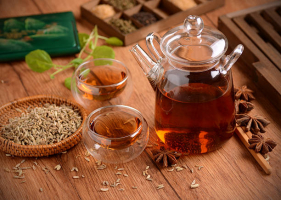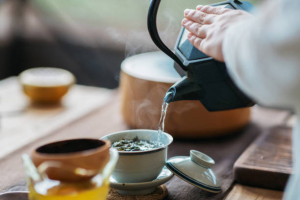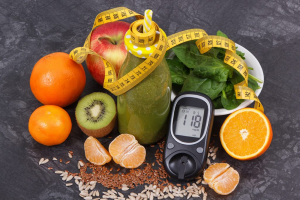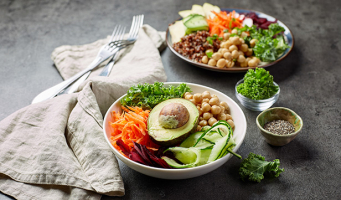Top 5 Best Teas for Nausea
It can be quite challenging to get through the day when you are experiencing nausea and vomiting. You may experience nausea for a variety of causes, including ... read more...pregnancy, migraines, food poisoning, and the flu. Nausea can be somewhat difficult to overcome, but there are certain things that can help. A hot cup of tea is one of the best cures for nausea. The following is a list of the best teas for nausea.
-
Ginger root is used to make ginger tea, a herbal infusion. Since ancient times, people have used this root to treat nausea naturally. Nowadays, it is frequently included in stomach-settling sweets, pills, and chews. Ginger was found to reduce nausea and vomiting brought on by morning sickness, chemotherapy, certain drugs, and surgery, according to an analysis of nine trials. Similar to this, research involving 576 chemotherapy patients discovered that consuming 0.5–1 grams of ginger dramatically reduced nausea symptoms when compared to a placebo.
Although the majority of research has relied on supplements and highly concentrated ginger extracts, ginger tea is probably still beneficial. Depending on how strong you want your tea, just grate a small knob of peeled ginger and steep it in boiling water for 10–20 minutes. Then filter the ginger and either consume it alone or enhance it with a little honey, cinnamon, or lemon.
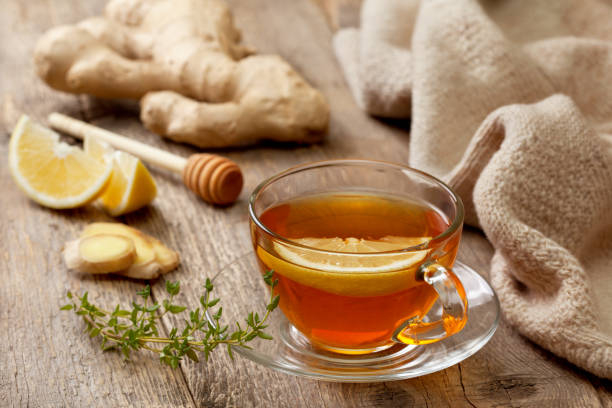
Ginger tea 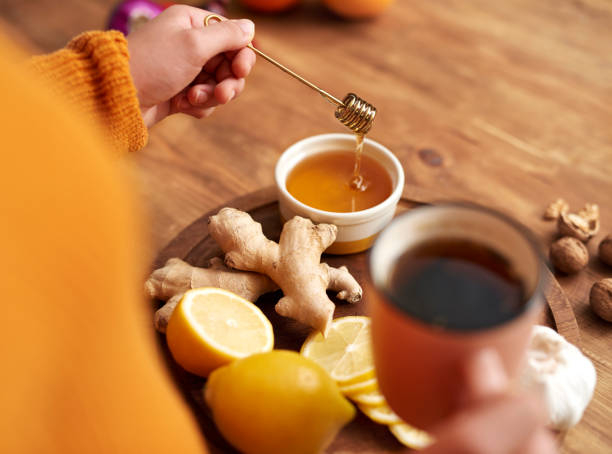
Ginger tea -
A sweet, earthy flower prized for its distinctive flavor and health-improving qualities are the source of chamomile tea. The digestive muscles are loosened and problems including motion sickness, nausea, vomiting, gas, and indigestion are treated with chamomile in conventional medicine. 4-month research involving 65 chemotherapy-treated women found that ingesting 500 mg of chamomile extract twice a day decreased the frequency of vomiting. A study of 105 women found that ingesting chamomile extract reduced pregnancy-related nausea and vomiting more effectively than taking ginger.
However, pregnant women should be aware that chamomile tea and other herbal teas may be harmful to their unborn children and should speak with their doctor before consuming them. Although chamomile flower extracts were used in these trials, chamomile tea may have similar benefits. To prepare it, soak 1 cup (240 ml) of boiling water with 2 grams (1 tablespoon) of dried chamomile for 5 to 10 minutes.
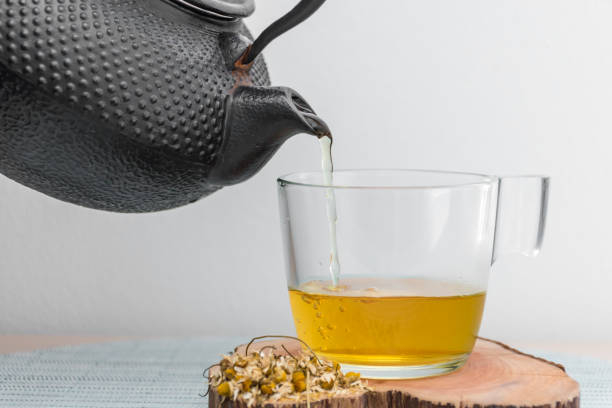
Chamomile tea 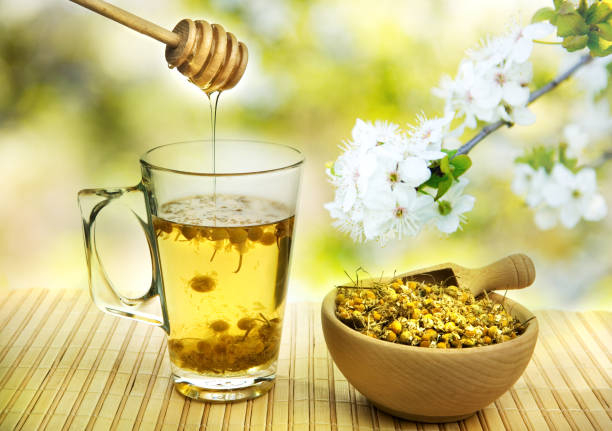
Chamomile tea -
Popular honey lemon tea combines a tart citrus flavor with a sweet finish. Numerous studies show that just the smell of lemon may make people feel better. For instance, a 4-day experiment involving 100 pregnant women revealed that inhaling lemon essential oil significantly decreased nausea and vomiting.
Honey, meanwhile, counteracts the acidic flavor of lemon. Additionally, it has antimicrobial qualities, which may guard against infections that could worsen nausea. Making homemade honey lemon tea is easy. To accomplish this, mix 1 cup (240 ml) of hot water with 2 teaspoons (10 ml) of lemon juice and 2 teaspoons (15 ml) of honey.

Honey lemon tea 
Honey lemon tea -
Carrots, celery, coriander, and dill are all closely related to the fragrant herb and vegetable known as fennel. It has been used for a very long time as an all-natural treatment for a variety of illnesses, such as constipation, diarrhea, and stomach discomfort. Research has supported some of these characteristics. For instance, one research involving 80 women discovered that eating a fennel pill with 30 mg before menstruation helped lessen symptoms like nausea and weakness.
Additionally, a 159-person trial found that consuming 1 cup (240 ml) of fennel tea every day after surgery promoted digestive health, gut healing, and stool regularity. Add 1 teaspoon (2 grams) of dried fennel seeds to 1 cup (240 ml) of boiling water to create fennel tea. Strain it after steeping it for 5 to 10 minutes.
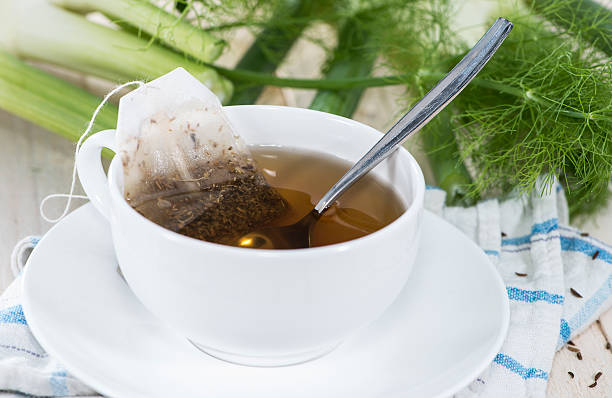
Fennel tea 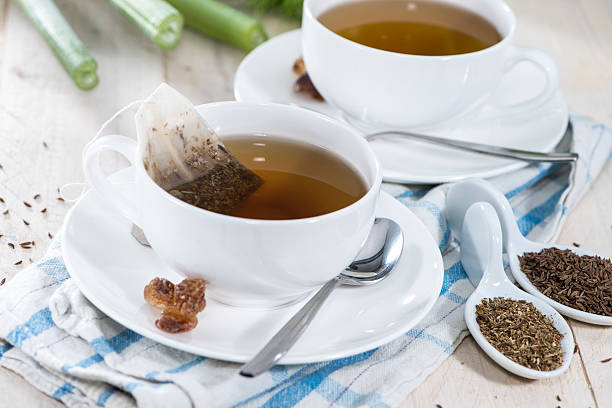
Fennel tea -
The herb licorice has a distinctively bittersweet taste. It has long been used in conventional medicine to relieve digestive problems in addition to being added to sweets, chewing gum, and drinks. Taking 75 mg of licorice extract twice daily for a month decreased indigestion symptoms such as nausea, vomiting, stomach discomfort, and bloating, according to research involving 54 participants. According to other studies, licorice extract may be able to treat stomach ulcers, which can result in symptoms including bloating, stomach pain, nausea, and vomiting.
Licorice root tea bags are widely available at grocery stores, health stores, and online. To ascertain the safety and efficacy of licorice tea, further high-quality studies are required because the majority of the published research on the subject utilized extracts. If used excessively, this plant may have unfavorable side effects including elevated blood pressure. Low potassium levels may make some adverse effects worse. Because of this, it's advised to keep your consumption to no more than 1 cup (240 ml) every day. If you have any underlying health issues, make sure to discuss them with your healthcare professional. . Furthermore, as is the case with other herbal teas, pregnant women should not drink licorice tea before consulting their healthcare provider, as it may pose a risk to their pregnancy.
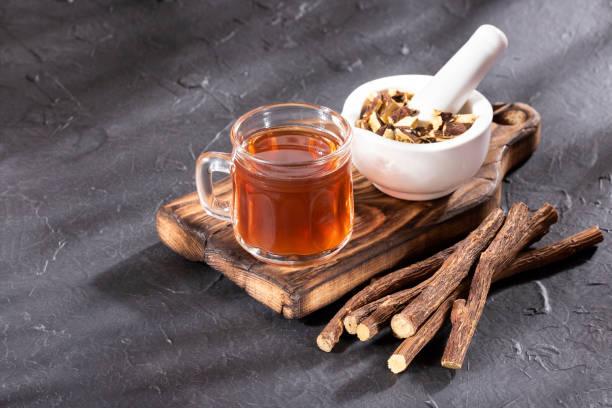
Licorice tea 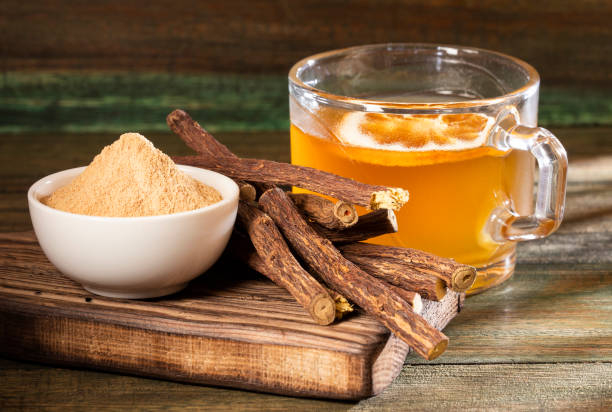
Licorice tea







